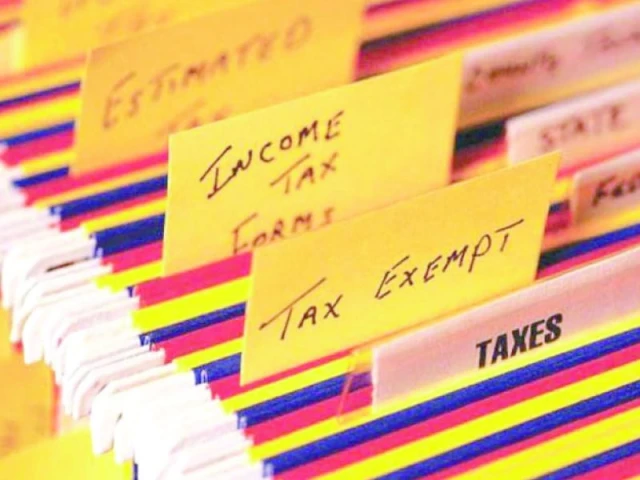Tax shortfall exceeds Rs1 trillion
It comes despite levying record new taxes, taking advances, blocking refunds

The shortfall in tax collection widened to an alarmingly high level of Rs1.03 trillion in just 11 months of the current fiscal year despite imposing record new taxes in the budget, taking advances, withdrawing money from people's bank accounts and blocking refunds of companies and individuals.
Only in May, the Federal Board of Revenue (FBR) faced a mammoth shortfall of Rs205 billion despite paying 5.3% less refunds compared to last year. The embarrassing outcome brings into question the government's strategy of collecting taxes from the already burdened classes and sectors of the economy.
One of the reasons for missing the monthly target by a wide margin is no new recovery of arrears in litigation cases, which both the government and the FBR had promised to recover through expeditious settlement of the cases.
The FBR provisionally collected Rs10.21 trillion from July through May of the current fiscal year, falling short of the target by Rs1.03 trillion, according to its statistics. The collection was still around 28%, or Rs2.2 trillion, higher than the previous fiscal year, but not enough to stay on track.
The key reasons behind the higher collection compared to last year were the imposition of more taxes in budget, particularly on the salaried class and corporate sector, and expansion of sales tax net to many untaxed areas. Yet the FBR missed the target by Rs1.03 trillion.
The FBR did not respond to a request for comment till the filing of the story.
The shortfall is far more than what the government committed in talks with the International Monetary Fund (IMF) in March this year, when the lender lowered the target by Rs640 billion for the full fiscal year.
In a meeting of the National Assembly Standing Committee on Finance on Thursday, PPP MNA Mirza Ikhtiar Baig said that the FBR illegally recovered money from multiple bank accounts in Karachi to meet its targets. Moreover, Utopia Industry, one of the top 12 exporters, is struggling to get Rs3 billion in refunds, a situation many industries are facing despite official claims of clearing refunds within 72 hours.
Details showed that in May the FBR paid Rs2 billion, or 5.3%, less refunds compared to the same month of last year. Total refund payments in 11 months reached hardly Rs458 billion, higher by just 1.1% and not in commensuration with the 28% rise in tax collection.
The salaried class was the most affected segment that paid a record Rs437 billion in taxes till April, which were 52%, or Rs150 billion, more than last year.
For May, the FBR's tax target was Rs1.1 trillion. However, despite taking advances and slowing refunds, it could collect Rs907 billion. The monthly collection was Rs271 billion, or 43%, more than last year, which a senior FBR official said was commendable in the current circumstances.
The IMF forced the country to impose new taxes, primarily burdening the salaried class and levying taxes on nearly all consumable goods, including medical tests, stationery, vegetables and children's milk.
For the July-May period, the FBR missed its targets for sales tax, federal excise duty (FED) and customs duty but again exceeded the income tax target on the back of overburdening the salaried class.
Income tax collection amounted to Rs4.9 trillion during the first 11 months of the current fiscal year, higher by Rs296 billion from the target. It was also Rs1.1 trillion more than last year. The burden was shared by the salaried class and the corporate sector as retailers and landlords remained under-taxed.
Sales tax collection stood at Rs3.5 trillion, a whopping Rs900 billion less than the target of Rs4.4 trillion. Sales tax remained the most difficult area for the FBR and one of the reasons for the low collection was less-than-estimated growth in large industries. The government had immensely increased the sales tax burden in the budget. The collection was Rs755 billion higher than last year.
The FBR collected Rs672 billion in FED, which was Rs166 billion less than the target. However, it was Rs180 billion higher than last year. The government did not spare homes, lubricants, fruit juices, cement, sugar, etc from FED in the last budget. Yet it failed to meet the target.
Customs duty collection stood at Rs1.16 trillion, below target by Rs265 billion. The collection was hit by lower-than-projected import volumes. It was also marred by the manipulation of goods declaration forms by importers in connivance with the corrupt elements. The amount was Rs172 billion higher than last year.























COMMENTS
Comments are moderated and generally will be posted if they are on-topic and not abusive.
For more information, please see our Comments FAQ